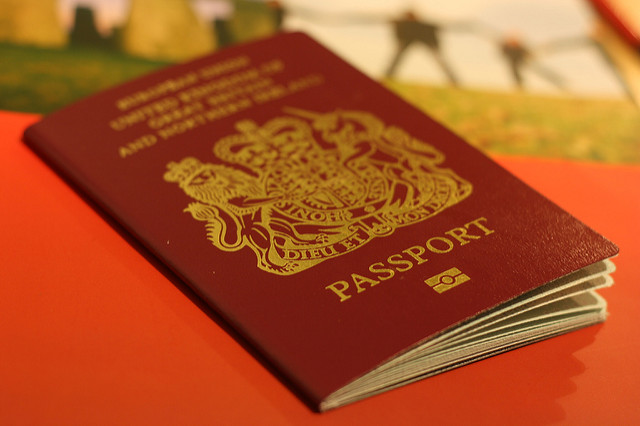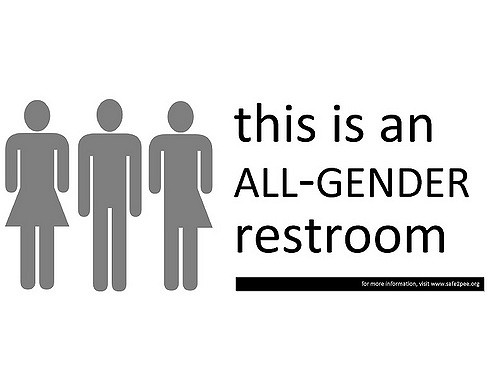4. Let Us Now Praise Famous Men
Conocimiento previo
 |
| Image by C. Thomas Anderson in Flickr. CC. |
“Let Us Now Praise Famous Men” is a book with text by American writer James Agee and photographs by American photographer Walker Evans, first published in 1941 in the United States. The work documents the lives of impoverished sharecroppers during the Great Depression. The title is from a passage in the Wisdom of Sirach that begins, "Let us now praise famous men, and our fathers that begat us".
The following extract from the book is about the Ricketts, a family of poor tenant farmers living in America in the 1930s.
| The Ricketts are spoken of disapprovingly, even so far away as the county courthouse, as 'problem' children. Their attendance record is extremely bad; their conduct is not at all good; they are always fighting and sassing back. Besides their long walk in bad weather, here is some more explanation. They are much too innocent to understand the profits of docility. They have to wear clothes and shoes which make them the obvious butts of most of the children. They come of a family which is marked and poor even among the poor whites, and are looked down on even by most levels of the tenant class. They are uncommonly sensitive, open, trusting, easily hurt, and amazed by meanness and by cruelty, and their ostracism is of a sort to inspire savage loyalty among them. They are indeed 'problems'; and the 'problem' will not be simplified as these 'over'-sexed and anarchic children shift into adolescence. The two girls in particular seem inevitably marked out for incredibly cruel misunderstanding and mistreatment. |
Pregunta de Elección Múltiple
Reflexión
Why do you think the writers believe 'the two girls in particular seem inevitably marked out for incredibly cruel misunderstanding and mistreatment'?
This was written in America in the 1930's Do you think the statement is still true?

The simple English word okay is heard often in conversation, but performs different functions. Sometimes it has the meaning “I understand”, sometimes “do you understand?”. Other times it is used as a discourse marker indicating a change of topic, or as an end-of-turn marker signaling for the other partner to speak. Different uses of the word have different intonational tunes.
When giving a set of instructions we use words like okay, now or right with a rising intonation to change from one instruction to the next.
 |
| Image by flatttop341 in Flickr. CC. |

Traditionally, English has used he/him/his when the sex of a person is not known, or in references that can apply to either men or women, especially in a formal style. Such usage as is now regarded as sexist. He or she, him or her and his or her are common.
If a student is ill, he or she must send a medical certificate ...
 |
| Image by Chris Flemingin Flickr . CC. |
In an informal style, we often use they to mean 'he or she', especially after indefinite words like somebody, anybody, nobody, person. This usage has been common in educated speech for centuries.
If anybody wants my ticket, they can have it.
There's somebody at the door. Tell them I'm out.
When a person gets married, they have to start thinking about their responsibilities.
Although it is most common in an informal style, it can also be found in formal written English:
Dual nationality: if the child possesses the nationality or citizenship of another country they may lose this when they get a British Passport.
This singular use of they/them/their is convenient when the person referred to could be either male or female (as in the examples above). He or she, him or her and his or her are clumsy, especially when repeated.
However, they/them/their can also be used when the person's sex is known:
I swear more when I'm talking to a boy, because I'm not afraid of shocking them.
No girl should have to wear school uniform, because it makes them look like a sack of potatoes.
They/them/their is sometimes used for a definite person who is not identified.
I had a friend in Paris, and they had to go to hospital for a month.
Actividad
Gender in animals, cars, ships and countries
People sometimes call animals he or she, especially when they are thought of as having personality, intelligence or feelings. This is common with pets and domestic animals like cats, dogs and horses.
Once upon a time there was a rabbit called Jack. He lived ...
Go and find the cat and put her out.
In these cases, who is often used instead of which.
She had an old dog who always slept in her bed.
Some people use she for cars, motorbikes etc; sailors often use she for boats and ships (but most other people use it).
How's your new car? Terrific. She's running beautifully.
The ship's struck a rock. She's sinking!
We can use she for countries, but it is more common in modern English.
France has decided to increase its trade with Romania. (or ... her trade ... )
Rellenar huecos
There are many names in the English language that exclude or are offensive to females. Take a look at this list of exclusionary words and find their non-exclusionary alternatives.
Conocimiento previo
 |
| Image by Samir Luther in Flickr. CC. |
More than 300 linguists, lexicographers and grammarians voted on the Word of The Year Award. The word "they" was selected for the considerable traction it gained in 2015 as a singular, gender-neutral pronoun.
English speakers have used "they" and "their" for centuries to refer to someone of unknown gender, like in the sentence "Everyone does their best."
However, more recently, the usage of the pronoun has expanded to include people who choose to identify outside the traditional gender binary. People are now taking on their own pronouns, making that a matter of choice and it does say something about the way people are exploring gender and sexual identity, and perhaps a greater openness to accepting new ways of expressing that identity through language.
Various news outlets that have broadened their linguistic standards recently. The New York Times has used the honorific "Mx." as an alternative to "Mr." or "Ms." when a subject "preferred not to be assigned a gender (non-binary). The Washington Post has added "they" to their style guide to accommodate "people who identify as neither male nor female."